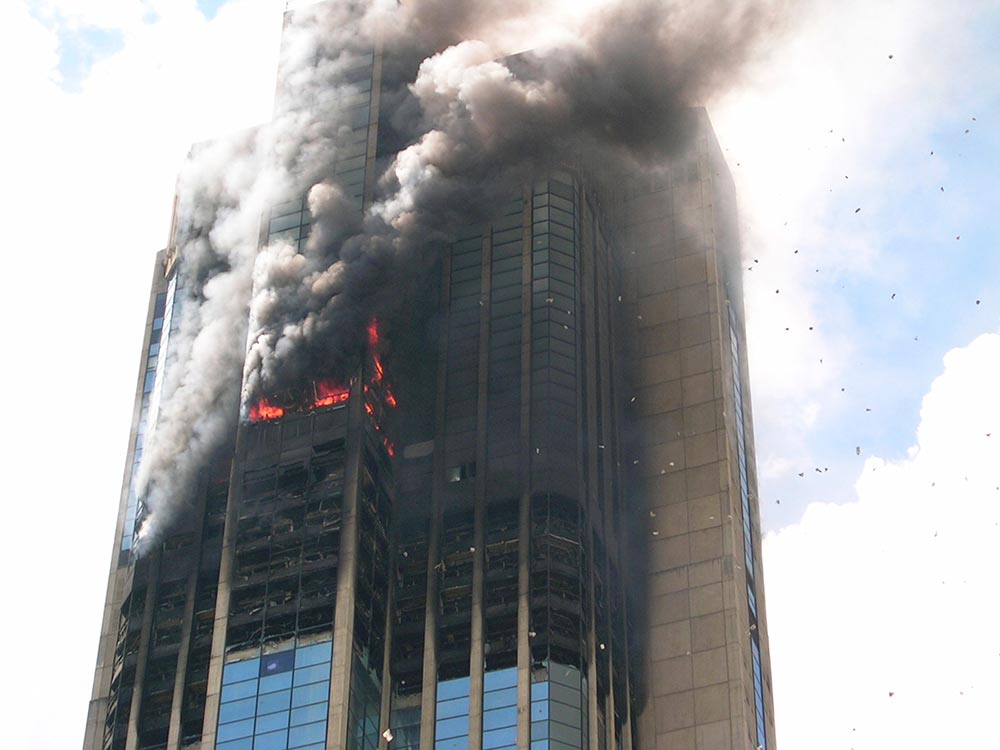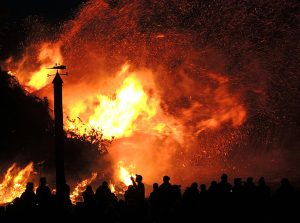When a fire strikes, the immediate concern is safety and extinguishing the flames. However, once the fire is out, property owners may face another set of challenges, including dealing with the aftermath of any damage caused by the fire department during their efforts to control the blaze.
This article explores who is responsible for damage caused by fire departments and provides insights into the legal and financial implications of such incidents. By understanding liability, property owners can better navigate the complexities of fire-related damage claims.
What is Fire Damage Legal Liability?
Fire damage legal liability pertains to the responsibility for damages caused either by a fire or during the firefighting efforts. This type of liability often extends to both direct fire damage and consequential damage caused by actions taken to extinguish the fire, such as breaking windows, cutting through roofs, or water damage from hoses.
According to legal experts, liability for fire damage can fall on different parties depending on the circumstances surrounding the fire. For example, if a fire results from negligence, the negligent party may be held responsible for all resulting damages, including those caused by the fire department’s intervention.
Parties Responsible for Damages
Identifying who pays for damage caused by fire departments involves analyzing various factors and potential liable parties:
- Property Owners: Generally, property owners are responsible for maintaining a safe environment. If a fire occurs due to their negligence, they may be liable for all damages, including those caused by firefighting efforts.
- Tenants and Occupants: Occupants may share liability if their actions or negligence contributed to the fire. For instance, leaving flammable materials near heat sources or failing to adhere to fire safety regulations can make tenants partially liable.
- Manufacturers and Contractors: If a fire is caused by a defective product or improper installation, the manufacturer or contractor can be held responsible. Product liability claims may arise in cases where appliances or building materials fail and lead to a fire.
- Fire Departments: In some jurisdictions, fire departments and their personnel are granted immunity from liability for damages caused during firefighting. However, this immunity is not universal and can vary by state or municipality.
Legal and Financial Implications
The implications of fire department-caused damage are multifaceted, involving legal, insurance, and financial considerations:
- Insurance Claims: Homeowner’s and commercial property insurance policies typically cover fire damage. However, policyholders should review their coverage to understand the extent of protection against firefighting-related damages. Policies may include exclusions for certain types of fires or damages .
- Negligence and Liability: Proving negligence is crucial in holding a party accountable for fire-related damages. This can involve demonstrating that a party failed to act with reasonable care to prevent the fire or mitigate its spread. Legal advice is often necessary to navigate these claims effectively.
- Legal Recourse: Property owners may need to pursue legal action to recover damages from responsible parties. This process can be complex, requiring evidence of negligence or product defects. Consulting with an attorney specializing in fire damage and liability can provide valuable guidance.
Preventive Measures
Taking preventive steps can significantly reduce the risk of fire and subsequent damages:
- Fire Safety Systems: Installing and maintaining fire alarms, sprinkler systems, and fire extinguishers can provide early warnings and help control fires before they escalate. Regular inspections and maintenance of these systems are essential for ensuring their effectiveness .
- Education and Awareness: Educating occupants about fire safety practices, such as proper storage of flammable materials and safe handling of open flames, can prevent fires. Regular fire drills and safety training can also prepare occupants for emergency situations.
- Proper Maintenance: Regular inspections and maintenance of electrical systems, heating equipment, and other potential fire hazards can help identify and rectify issues before they cause fires. This proactive approach not only enhances safety but also compliance with safety regulations .
Conclusion
Understanding who pays for damage caused by fire departments involves navigating complex legal and insurance landscapes. Property owners, tenants, manufacturers, and fire departments can all potentially bear responsibility, depending on the circumstances.
To ensure adequate compensation and protection, it is crucial to understand your insurance policy, seek legal advice, and implement preventive measures.
For more information on who pays for damage caused by fire departments and to get help with your insurance claims, contact Insurance Claim Hero today. Taking proactive steps now can safeguard your property and financial future.




